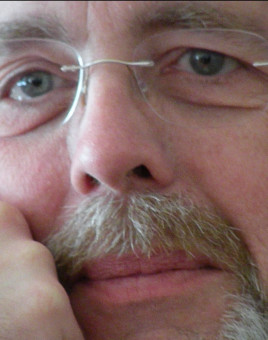
Tom Schoeneman
Professor of Psychology
Professional Interests: Historical and current stereotypes of mental disorder, metaphors and images of madness, cultural conceptions of individualism, social constructionism and postmodernism in psychology, attribution theory, self-concept.
Specialty
Clinical PsychologyAcademic Credentials
1973 BA, Psychology, SUNY at Buffalo
1974 MS, Social Sciences, SUNY at Buffalo
1979 PhD, Clinical Psychology, SUNY at Buffalo
Teaching
Undergraduate Psychology
- 240: Abnormal Psychology
- 340: Personality Theory
- 345: Overseas Internship
- 440: Social Construction of Madness
- 445: Psychology Internship
Summer
- Perspectives in Film: Alfred Hitchcock/Stanley Kubrick/Orson Welles/Film Noir
Overseas Programs
- 1990 Spring: Kenya (General Culture)
- 2003 Spring: Australia (General Culture)
- 2005 Summer: Australia (Psych Internship)
- 2007 Spring: London (Psych Internship)
- 2011 Spring: London (Psych Internship)
- 2015 Spring: Dublin (Psych Internship)
Research
Selected Publications
Schoeneman, T. J., Putnam, J., Rasmussen, I., Sparr, N., & Beechem, S. (2012). “A Fire in the Blood”: Metaphors of Bipolar Disorder in Jamison’s An Unquiet Mind. Journal of Medical Humanities, 33, 185-205.
Schoeneman, T. J., Schoeneman, K. A., Obradovic, J., & Beecher-Flad, L. (2010). Social representations of AIDS: Pictures in abnormal psychology textbooks, 1984-2005. Journal of Applied Social Psychology, 40, 13-35.
Schoeneman, T. J., Henderson, C. M., & Weathers, V.M. (2005). Interior landscapes of mental disorder: Visual representations of the experience of madness. American Journal of Orthopsychiatry, 75, 171-189.
Schoeneman, T. J., Schoeneman, K. A., & Stallings, S. (2004). “The black struggle”: Metaphors of depression in Styron’s Darkness Visible. Journal of Social and Clinical Psychology, 23, 325-346.
Ma, V., & Schoeneman, T. J. (1997) Individualism versus collectivism: A comparison of Kenyan and American self-concepts. Basic and Applied Social Psychology, 19, 261-273.
Schoeneman, T. J., Brooks, S., Gibson, C., Routbort, J., & Jacobs, D. (1994). Seeing the insane in textbooks of abnormal psychology: The uses of art in histories of mental illness. Journal for the Theory of Social Behaviour, 24, 111-141.
Schoeneman, T. J. (1994). Individualism. In V. S. Ramachandran (Ed.), Encyclopedia of Human Behavior (Vol. 2, pp. 631-643). San Diego: Academic Press.
Schoeneman, T. J., Segerstrom, S., Griffin, P., & Gresham, D. (1993). The psychiatric nosology of everyday life: Categories in implicit abnormal psychology. Journal of Social and Clinical Psychology, 12, 429-453.
Schoeneman, T. J., & Curry, S. (1990). Attributions for successful and unsuccessful health behavior change. Basic and Applied Social Psychology, 11, 421-431.
Schoeneman, T. J., Stevens, V. J., Hollis, J. F., Cheek, P. R., & Fischer, K. (1988). Attribution, affect and expectancy following smoking cessation treatment. Basic and Applied Social Psychology, 9, 173-184.
Schoeneman, T. J., Hollis, J. F., Stevens, V. J., Fischer, K., & Cheek, P. R. (1988). Recovering stride versus letting it slide: Attributions for “slips” following smoking cessation treatment. Psychology and Health, 2, 335-347.
Fischer, K., Schoeneman, T. J., & Rubanowitz, D. E. (1987). Attributions in the advice columns: II. The dimensionality of actors’ and observers’ explanations for interpersonal problems. Personality and Social Psychology Bulletin, 13, 458-466.
Schoeneman, T. J., van Uchelen, C., Stonebrink, S., & Cheek, P. R. (1986). Expectancy, outcome and event type: Effects on retrospective reports of attributional activity. Personality and Social Psychology Bulletin, 12, 353-362.
Schoeneman, T. J., & Rubanowitz, D. E. (1985). Attributions in the advice columns: Actors and observers, causes and reasons. Personality and Social Psychology Bulletin, 11, 315-325.
Schoeneman, T. J. (1984). The mentally ill witch in textbooks of abnormal psychology: Current status and implications of a fallacy. Professional Psychology: Research and Practice, 15, 299-314.
Schoeneman, T. J., Tabor, L. E., & Nash, D. L. (1984). Children’s reports of the sources of self-knowledge. Journal of Personality, 52, 124-137.
Schoeneman, T. J. (1982). Criticisms of the psychopathological interpretation of witch hunts: A review. American Journal of Psychiatry, 139, 1028-1032.
Schoeneman, T. J. (1981). Reports of the sources of self-knowledge. Journal of Personality, 49, 284-293.
Shrauger, J. S., & Schoeneman, T. J. (1979). Symbolic interactionist view of self-concept: Through the looking glass darkly. Psychological Bulletin, 86, 549-573.
Schoeneman, T. J. (1977). The role of mental illness in the European witch hunts of the sixteenth and seventeenth centuries: An assessment. Journal of the History of the Behavioral Sciences, 13, 337-351.
Schoeneman, T. J. (1975). The witch hunt as a culture change phenomenon. Ethos, 3, 529-554.
Location: Biology-Psychology Hall
Psychology is located in Biology-Psychology on the Undergraduate Campus.
MSC: 16
email psych@lclark.edu
voice 503-768-7511
Chair
Psychology
Lewis & Clark
615 S. Palatine Hill Road MSC 16
Portland OR 97219